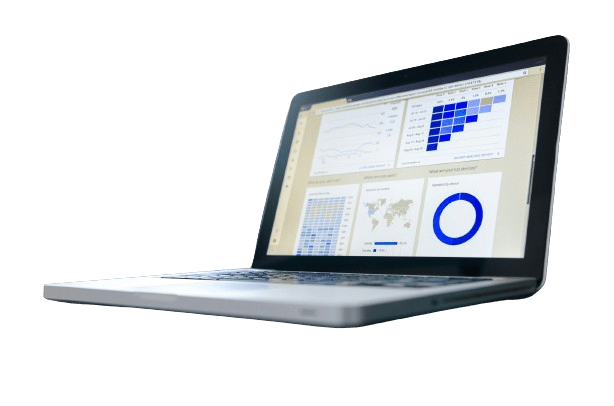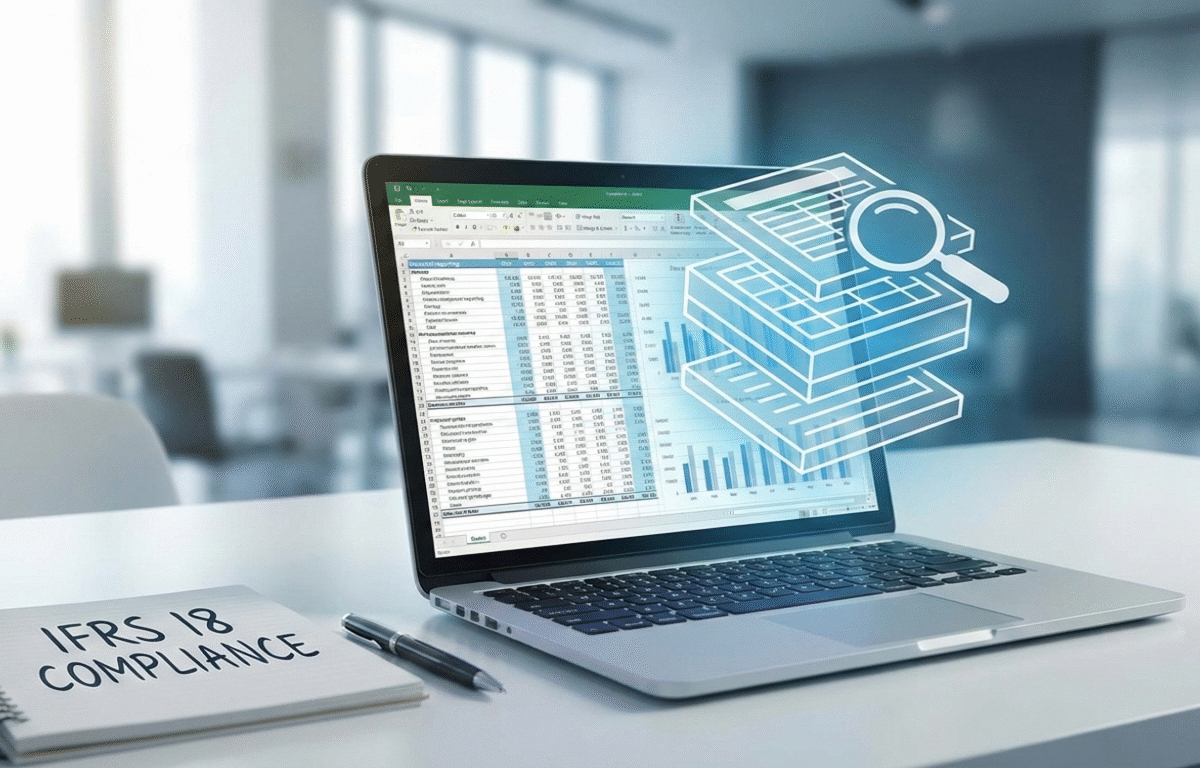- 1 March 2024
- No Comment
- 1297
Adapting to IFRS 18: What Accountants Need to Prepare For

In response to growing concerns among investors regarding the transparency and comparability of companies’ performance reporting, the International Accounting Standards Board (IASB) embarked on the Primary Financial Statements (PFS) project. The IASB is set to introduce IFRS 18: Presentation and Disclosure in Financial Statements.
IFRS 18 represents a pivotal development in financial reporting standards, designed to replace the existing International Accounting Standard (IAS) 1 Presentation of Financial Statements.
The new standard focuses on setting out comprehensive requirements for the presentation and disclosure of information in financial statements, elevating the clarity and accessibility of financial information for stakeholders.
IFRS 18 is slated to be published in April 2024. The standard is set to become effective for annual reporting periods commencing on or after January 1, 2027. Moreover, companies will be required to restate the comparative period to align with the new standard.
Hi, I’m Nabeel Shaikh, a seasoned chartered accountant with over 17 years of diverse experience in the field. In this article, we’ll share a critical development in the world of accounting—the upcoming International Financial Reporting Standard, IFRS 18, and provide a comprehensive summary of this impending standard, focusing on the transition from IAS 1 to IFRS 18, examining the potential impact it holds for entities, and exploring the key aspects of adopting IFRS 18. Let’s begin!
Transitioning from IAS 1 to IFRS 18
The transition from IAS 1 to IFRS 18 brings about substantial changes in the presentation of financial statements, specifically focusing on the statement of profit or loss. While the final version of IFRS 18 is pending release, the following key changes provide a glimpse into the shifts from IAS 1 to the upcoming standard:
Categorization of Income and Expenses
Under IAS 1, there is no specific requirement to classify income and expenses into distinct “classes” or “categories.”
However, IFRS 18 introduces a significant departure from this practice. The new standard mandates the classification of income and expenses into five specific categories in the statement of profit or loss. This structured approach aims to enhance the consistency and comparability of financial performance across different companies.
IFRS 18 introduces a more detailed breakdown by requiring entities to classify income and expenses into the following five categories:
1) Operating 2) Investing 3) Financing 4) Income Tax 5) Discontinued operations
The imposition of these categories is designed to provide a standardized framework for reporting financial performance. This move is aligned with the broader objective of addressing investors’ concerns about the comparability and transparency of companies’ performance reporting, which was a key impetus behind the initiation of the PFS project.
Two New Subtotals
The introduction of two new subtotals under IFRS 18 reflects a deliberate effort to enhance the transparency and clarity of financial statements.
Operating Profit or Loss:
IFRS 18 mandates the presentation of an “Operating Profit or Loss” subtotal. This subtotal encompasses all income and expenses classified within the operating category.
By isolating these items, entities can provide stakeholders with a focused view of the core operational performance of the business.
Profit or Loss Before Financing and Income Tax:
Another significant addition is the “Profit or Loss Before Financing and Income Tax” subtotal. This comprises all income and expenses classified within both the operating and investing categories. This subtotal offers a broader perspective, capturing the financial performance before the impact of financing activities and income tax considerations.
The strategic placement of these subtotals between revenue and the final profit or loss figure provides a logical flow, enabling readers to follow the financial narrative more effectively.
Shift in Cash Flow Reporting:
The amendments to IAS 7 (Statement of Cash Flows) as a result of IFRS 18 will alter the reporting of cash flows from operating activities. Operating profit or loss will become the starting point for the indirect method, aligning with the changes in the presentation of the statement of profit or loss. The elimination of the accounting policy choice for classifying interest and dividend cash flows further adds to the modifications in cash flow reporting.
Enhanced Labelling, Aggregation, and Disaggregation:
The requirements for labeling, aggregation, and disaggregation are heightened under IFRS 18. Entities must now disaggregate items if the resulting information is material, and the use of the label “other” is restricted. Additionally, entities classifying expenses by function face new disclosure requirements, including detailed breakdowns for depreciation, amortization, employee benefits, impairment losses, and write-down of inventories.
Management-Defined Performance Measures (MPM)
The focus on management performance measures in the development of IFRS 18 reflects a concerted effort by the IASB to address concerns regarding the proliferation of alternative performance measures in annual reports. The standard aims to provide clarity and enhance the utility of financial statements for stakeholders.
Definition of Management-Defined Performance Measures:
IFRS 18 defines management-defined performance measures as subtotals of income and expenses that communicate management’s view of an aspect of an entity’s financial performance. It explicitly states that totals and subtotals specified by IFRS Standards are not considered management-defined performance measures. This distinction aims to guide users in discerning the figures that represent management’s perspective.
Rebuttable Presumption for Communications Outside Financial Statements:
There is a rebuttable presumption that subtotals used in communications outside financial statements are considered management-defined performance measures. This presumption emphasizes that when management communicates financial performance measures beyond the formal financial statements, those measures are likely to fall under the scope of IFRS 18. However, oral communications, transcripts, and social media posts are explicitly excluded from this scope.
Specific Disclosures in a Single Note:
Under IFRS 18, entities are required to disclose information about management-defined performance measures in a single note to the financial statements. If these measures align with those disclosed as part of the operating segment information under IFRS 8, they can be included within the same note, streamlining the disclosure process.
Explanation of Calculation and Usefulness: The disclosure note should include a detailed explanation of how the management-defined performance measure is calculated and why it provides useful information about the entity’s performance.
Reconciliation to Comparable Subtotal or Total: Entities are required to provide a reconciliation between the management-defined performance measure and the most directly comparable subtotal or total specified in IFRS Standards. This reconciliation should disclose the income tax effect and any impact on non-controlling interests.
Changes in Calculation, Introduction, or Removal of Measures: If an entity changes the calculation of a management-defined performance measure, introduces a new measure, or removes a previously disclosed measure, it must provide a clear explanation of the change and the reasons behind it. Comparative information should be provided unless impracticable, in which case the entity must disclose this impracticability.
Impact of IFRS 18
The upcoming IFRS 18, which is a comprehensive standard for presentation and disclosure in financial statements, will undoubtedly have a widespread impact across various industries.
Companies and Entities:
Companies across all industries will be directly impacted, as IFRS 18 replaces IAS 1 for presentation of financial statements. They will need to adapt their reporting practices to comply with the new requirements, affecting how they present and disclose financial information.
Investors and Shareholders:
Investors are a crucial stakeholder group affected by IFRS 18. The standard aims to address investors’ concerns about the comparability and transparency of companies’ performance reporting. The changes will influence the information available to investors, allowing for better-informed decision-making.
Auditors:
Auditors play a vital role in ensuring the accuracy and reliability of financial information. With the introduction of IFRS 18, auditors will need to reassess their assurance procedures to align with the new presentation and disclosure requirements. This could involve additional scrutiny and verification processes.
Regulatory Bodies:
Regulatory bodies overseeing financial reporting standards will need to update their guidelines and ensure that companies comply with the new standard. They play a crucial role in maintaining the integrity and consistency of financial reporting practices.
Educational Institutions and Accounting Professionals:
Accounting students and professionals will be impacted as they need to update their knowledge and skills to understand and implement the new standard. Educational institutions may need to adjust their curricula to incorporate IFRS 18, ensuring that future accountants are well-versed in the latest reporting requirements.
Analysts and Financial Advisors:
Financial analysts and advisors rely heavily on financial statements for their analyses and recommendations. IFRS 18 will shape the information available to them, impacting how they assess and evaluate the performance and financial health of companies.
Adoption of IFRS 18
Certainly, preparing for the adoption of IFRS 18 requires a proactive and systematic approach. Here are suggested steps that entities can consider taking now:
Understand the New Accounting Requirements:
Begin by thoroughly understanding the forthcoming accounting requirements outlined in IFRS 18. The IASB project webpage provides a preliminary overview of the tentative standard. Entities should review this information to gain insights into the expected changes and key provisions.
Conduct an Initial Impact Assessment:
Conduct a comprehensive assessment of how the new requirements will impact your entity’s financial reporting systems, processes, and controls. Identify potential areas of change, and assess the implications on data collection, processing, and reporting. This initial assessment will form the foundation for a structured transition plan.
Review Policies for Aggregation, Disaggregation, and Labeling:
Given the enhanced requirements for labeling, aggregation, and disaggregation, entities should review and potentially update their policies to align with the new standards. This includes ensuring that financial information is labeled informatively, material items are appropriately disaggregated, and the use of the “other” label is minimized.
Assess Impact on Management-Defined Performance Measures (MPM):
Consider the potential impact of the new requirements related to Management-Defined Performance Measures (MPM) on your entity’s external communication strategy. Evaluate how the disclosure requirements for MPM align with your current communication practices and identify any adjustments needed to meet the disclosure obligations.
Stay Informed and Prepare for Publication:
Stay tuned for the forthcoming publication of IFRS 18. Regularly check the IASB’s Presentation and Disclosure in Financial Statements webpage for updates and technical support. This will provide you with access to the latest information, guidance, and resources as you prepare for the adoption of the new standard.
Engage with Professional Organizations:
Consider engaging with professional organizations, such as the Institute, for additional support and insights. These organizations often provide valuable resources, forums for discussion, and guidance on implementing new accounting standards.
Develop a Transition Plan:
Based on the initial impact assessment, start developing a detailed transition plan that outlines specific tasks, responsible parties, and timelines. A well-structured plan will help ensure a smooth transition to IFRS 18 and minimize disruptions to financial reporting processes.
In summary, IFRS 18 places a strong emphasis on transparency and accountability in the use of management-defined performance measures. The standard seeks to provide stakeholders with a clear understanding of these measures, their calculation methodologies, and their relevance to the entity’s financial performance. Entities should carefully consider these requirements as they prepare for the implementation of IFRS 18, ensuring comprehensive and informative disclosures that align with the objectives of the new standard.


